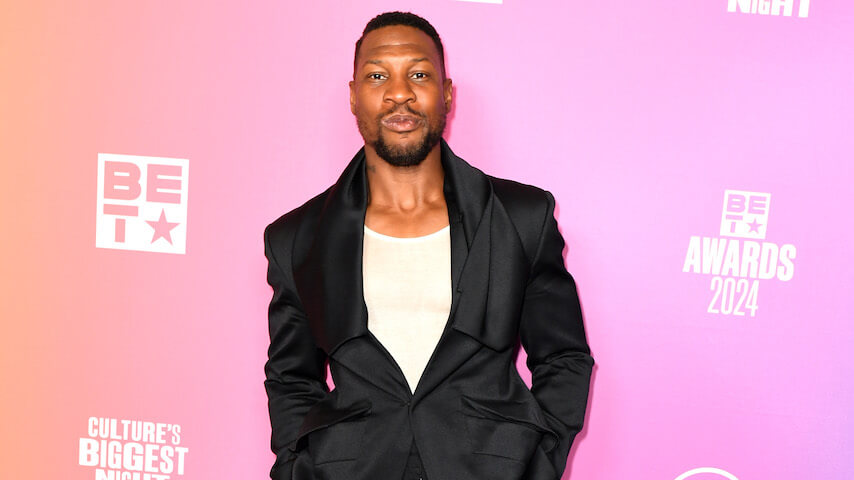Mark Ruffalo Speaks Out on Potential Consequences of 'Jimmy Kimmel Live!' Cancellation
#mark_ruffalo #jimmy_kimmel_live #disney #marvel #cancellation

Introduction
Actor and activist Mark Ruffalo recently made a bold statement about the potential consequences of ABC's decision to cancel 'Jimmy Kimmel Live!', and it's not just limited to the show's loyal fan base. Ruffalo, known for his role as The Hulk in the Marvel Cinematic Universe, believes that the cancellation could have a significant impact on Disney's stock performance.
Key Details
Ruffalo's prediction stems from the success of 'Jimmy Kimmel Live!', which has been a staple of ABC's late-night lineup for over 17 years. The show has not only garnered a loyal following, but it has also consistently performed well in ratings, making it a valuable asset for the network and its parent company, Disney.
However, Ruffalo's concerns go beyond just the loss of a popular show. He also points out that the cancellation could have a ripple effect on other Disney properties, including the highly profitable Marvel franchise. With Kimmel being a frequent host for Marvel movie premieres, the show's cancellation could impact the marketing and promotion of future films.
Impact
Ruffalo's comments have sparked conversations about the relationship between Disney and its subsidiary companies, as well as the potential consequences of canceling a successful show like 'Jimmy Kimmel Live!'. While Disney has not officially announced any plans to cancel the show,
About the Organizations Mentioned
Disney
The Walt Disney Company is a renowned American multinational mass media and entertainment conglomerate headquartered in Burbank, California. Founded on October 16, 1923, by Walt and Roy Disney as the **Disney Brothers Cartoon Studio**, it has evolved into a global leader in entertainment, technology, and innovation. ## History and Achievements Disney's rise to fame began with the introduction of **Mickey Mouse** in the 1928 short film *Steamboat Willie*, marking the first post-produced sound cartoon. Over the years, the company diversified into live-action films, television, and theme parks. The **Disney Renaissance** period from 1989 to 1999, led by CEO Michael Eisner, revitalized the company's animation sector. Notable acquisitions include **Pixar** (2006), **Marvel Entertainment** (2009), **Lucasfilm** (2012), and **21st Century Fox** (2019), further solidifying Disney's position as a major entertainment conglomerate. ## Current Status Today, Disney is a powerhouse in the media and entertainment industry, with a significant presence in film production, television networks, theme parks, and streaming services like **Disney+**. The company's revenue has consistently grown, with a notable increase to $91.36 billion in 2024, driven largely by its media and entertainment segment[5]. Despite leadership changes, including the reinstatement of Bob Iger as CEO in 2022, Disney continues to innovate and expand its offerings. ## Notable Aspects - **Innovation and Technology**: Disney has been at the forefront of technological advancements, integrating innovative storytelling with cutting-edge technology in its films and theme parks. - **Global Reach**: With operations spanning across the globe, Disney's brand is recognized and celebrated worldwide. - **Corporate Social Responsibility**: Disney emphasizes social responsibility through environmental protection and community engagement initiatives[1]. - **Future Projects**: Upcoming projects, such as *Moana 2* in
ABC
ABC, or Associated Builders and Contractors (ABC), is a prominent national trade association dedicated to advancing the construction industry in the United States. Founded in 1950, ABC has grown into a leading advocate for merit shop construction, representing over 21,000 commercial construction and construction-related firms. The organization is committed to helping its members develop skilled people, win work, and deliver projects safely, ethically, and profitably, ultimately contributing to the betterment of communities nationwide. ABC is recognized for its strong emphasis on innovation and technology. Through its Tech Alliance, a curated group of 15 construction technology companies, ABC provides members with access to cutting-edge solutions, educational resources, and beta testing opportunities. This initiative, led by Matthew Abeles, ABC’s Vice President of Construction Technology and Innovation, positions the association at the forefront of construction technology adoption. ABC also publishes insightful reports, such as the ABC Field Tech Report, which highlights transformative technologies like drones, robotics, and laser scanning, reshaping safety and efficiency on modern job sites. Throughout its history, ABC has championed workforce development, safety standards, and ethical business practices. The organization is known for its robust advocacy efforts, promoting policies that support a competitive and fair construction environment. ABC’s chapters across the country offer local support, networking, and professional development opportunities, fostering a strong sense of community among its members. Today, ABC remains a vital force in the construction industry, driving innovation, supporting its members, and shaping the future of building and infrastructure. Its commitment to technology, education, and ethical business practices makes ABC a key player for anyone interested in the intersection of business and technology in the construction sector.
Marvel
Marvel is a leading American entertainment company best known for its vast portfolio of comic book characters, including Spider-Man, Iron Man, Captain America, and the Avengers. The organization originated as Timely Publications in 1939, founded by Martin Goodman, and evolved through various name changes—Atlas Comics in the 1950s and eventually Marvel Comics in the early 1960s. The Marvel brand was solidified with the launch of *The Fantastic Four* in 1961, created by Stan Lee, Jack Kirby, and others, marking the start of the shared Marvel Universe, set primarily in New York City[3][7][8]. Marvel Entertainment, LLC was formed in 1998 from the merger of Marvel Entertainment Group and Toy Biz, focusing on consumer products, licensing, comic books, and film and television production[1]. In 2009, The Walt Disney Company acquired Marvel for $4 billion, integrating it into its consumer products and entertainment divisions, significantly boosting Marvel's global reach and resources[1][4]. A key milestone for Marvel was the launch of Marvel Studios under the leadership of Kevin Feige in 2007, who spearheaded the Marvel Cinematic Universe (MCU). The 2008 release of *Iron Man* marked the start of a highly successful, interconnected film franchise, now valued at over $17 billion. Marvel Studios revolutionized the superhero genre with its strategic casting and storytelling, producing blockbuster hits like *Black Panther*, which set box office records and broadened cultural representation in media[4]. Today, Marvel’s characters appear not only in comics and films but also in television series, theme parks, and various licensed products worldwide. Despite Marvel Entertainment's organizational dissolution in 2023, its properties remain vital within Disney’s broader media empire, holding film licensing deals with Sony for Spider-Man and theme park agreements with Universal and Disney[1]. Marvel’s blend of compelling storytelling, innovative film production, and cross-platform presence continues to influence global entertainment and technology
















